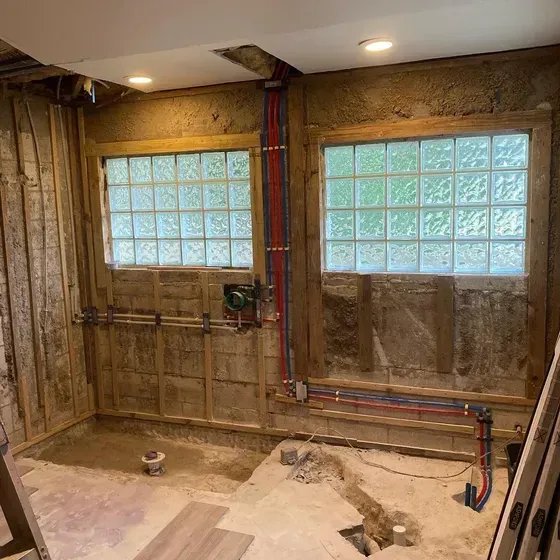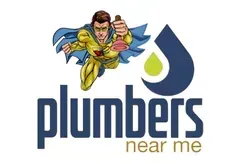Expert Leak Repair Services in West Palm Beach, FL
CALL TODAY FOR A FREE ESTIMATE (561) 571-7473
West Palm Beach’s Go-To Team for Leak Repairs
Small leaks in a home’s plumbing often go unnoticed at first, but over time, they can lead to serious damage. A dripping pipe beneath the sink or a hidden slab leak under the foundation can quietly cause problems. That’s why catching leaks early really matters. Using plumbing leak detection tools helps find these hidden issues before they turn into expensive repairs. At Plumbers Near Me, we’ve dealt with many cases around West Palm Beach where untreated leaks led to mold and even structural damage.
Some signs you may need leak repair include low water pressure, wet spots on walls or floors, or an unexplained spike in your water bill. If you’re searching for leak repair near you, it’s usually because one of these symptoms has shown up. Don’t wait—getting a professional inspection can save time and money.
Modern leak detection and repair tools allow us to locate problems without tearing apart your home. Whether it’s slab leak repair, pipe leak repair, or general plumbing leak repair, accurate diagnosis makes all the difference.
If you’re in West Palm Beach and need emergency leak repair, shut off your water main and check your meter. Plumbers Near Me offers some of the best leak repair services for local homeowners.

Our Process for Solving Leak Issues the Right Way
Expert Solutions, Guaranteed Satisfaction
Identify the Problem
The first step in any leak repair is figuring out where the issue begins. Signs like increased water bills, wall stains, or low pressure often show up first. Plumbing leak detection confirms escaping water and helps locate the source.
Pinpoint the Leak
Once you know there’s a leak, figuring out exactly where it’s coming from really matters. Tools like acoustic sensors or thermal cameras help spot it more precisely, which can make water and slab leak repair a lot less invasive.
Repair with Care
With the source confirmed, the next thing to consider is the best way to handle the repair. Sometimes pipe leak repair is enough, but in tougher cases—like under concrete—emergency leak repair or more invasive work might be needed.
Protective and Efficient Solutions for Leak Issues
If a leak isn’t found early, it can cause more serious problems over time—like moisture damage, worn-out materials, or even mold. The fix usually isn’t just a quick patch. You need to figure out where it’s really coming from first. Finding the actual source, whether it’s behind a wall or under a slab, helps take pressure off the plumbing system and makes it less likely you’ll deal with another failure later on.
Diagnose Leak Indicators
- You might first notice something small, like a higher water bill, damp flooring, or stains on the wall. These kinds of issues usually mean water is escaping somewhere. Spotting these early signs helps limit structural damage and points you in the right direction.
Confirm Leak Evidence
- Seeing a stain or smelling something musty doesn't always mean there's a leak. It could be something else. That's why technicians usually test the system—checking pressure or reading the meter—to confirm water loss before they move forward with any kind of repair.
Deploy Acoustic Sensing
- Sometimes, finding a leak means listening for it. Acoustic tools help pick up sounds water makes when it escapes from places it shouldn't—like under concrete or inside a wall. This method is commonly used by professionals to locate hidden leaks without prematurely breaking open surfaces.
Utilize Thermal Imaging
- You might not see a leak, but thermal cameras can catch cooler spots where moisture builds up behind walls or under flooring. That kind of cold area could be a slow leak. Infrared imaging really helps in slab leak repair by spotting problems early on.
Pinpoint Source Precisely
- Once you know there’s a leak, the next thing is figuring out exactly where it’s coming from. Getting that right means you don’t have to rip open extra walls. It also helps make sure the repair works the first time—no repeat fixes needed.
Choose Repair Method
- What kind of repair you need really depends on where the leak is and what type it is. A pipe behind drywall might be easy to reach, but if it’s under concrete, tunneling could be needed. Choosing right helps keep costs and problems down.
Minimize Invasive Work
- Modern A lot of the time, newer detection tools mean there’s less need to tear things up. Instead of ripping out walls or floors, techs can often find the problem through smaller spots. That saves time, lowers labor, and keeps the rest of the house intact.
Perform Pipe Repairs
- Once the leak location is exposed, repairs may involve replacing a damaged pipe section, reinforcing a joint, or applying sealants. The repair depends on pipe material, age, and condition. Restoring water flow without overhauling undamaged areas is the goal of most pipe leak repairs.
Address Slab Leaks
- Leaks under a slab are tricky to deal with. Repair options might include tunneling, rerouting, or cutting into the floor, depending on the location of the leak and the construction of the home. Finding the problem early helps keep repair costs down and protects the foundation.
Verify System Integrity
- detecting and repair This is because climate, soil type, and water quality affect the performance of plumbing systems. Understanding these factors helps professionals choose effective repair methods and preventive strategies tailored to regional conditions, ensuring long-lasting solutions suited to specific environmental challenges.
Every home’s plumbing system is different. Things like how it’s laid out, what kind of pipes are used, and how old everything is all play a role in how repairs should be done. Using a one-size-fits-all fix can overlook deeper issues, which might lead to bigger, more expensive problems later. That’s why plumbers usually start with a close inspection, using tools like thermal cameras or acoustic sensors to figure out exactly what’s going on. Once they’ve found the source, the next step is putting together a repair plan that solves the problem without tearing things up more than necessary and helps keep everything working the way it should.

Frequent Leak Concerns We Address in West Palm Beach
Leaks don’t always show up right away. You might notice a little discoloration on a wall, a damp smell, or lower water pressure that sticks around. Those signs can point to cracked pipes, worn-out joints, or even a slab leak. Figuring out where it’s coming from is the first real step. Tools like thermal imaging or acoustic sensors help find the actual source. Then, the right repair—whether it’s pipe leak repair, slab leak repair, or something else—can be planned. In some cases, emergency leak repair is needed quickly to stop further damage and prevent long-term issues from developing across the plumbing system.
A Small Leak Can Lead to Big Damage if Left Untreated
in West Palm Beach Home
Leaks rarely make themselves obvious at the start. They often begin behind walls, beneath sinks, or under concrete slabs, where they remain hidden. Even a minor leak can slowly affect the structure of a home—causing moisture buildup, wood rot, and conditions that encourage mold growth. In places like West Palm Beach, causes often include aging pipes, mineral buildup, or small shifts in the foundation that put stress on water lines.
Catching a leak early isn’t just about stopping the drip—it’s about avoiding long-term damage that’s harder to fix later. The Environmental Protection Agency estimates that household leaks waste nearly 10,000 gallons of water each year. That water doesn’t just vanish. It can slowly seep into flooring, drywall, or even the home’s structural framing. Over time, that kind of moisture can weaken important materials. Tools like thermal cameras, acoustic sensors, and in-line video scopes help plumbers figure out exactly where the leak is without tearing up walls or floors just to guess. It’s a smarter way to find the issue without unnecessary damage.
Before any repair is done, it’s critical to determine the exact source. Whether the problem is behind a wall or under the foundation, knowing the location and cause helps guide the most appropriate response. This reduces unnecessary disruption and helps keep the system functioning the way it was designed to.
Making repairs that fit the actual layout and condition of the plumbing system tends to lead to better, longer-lasting results. A well-thought-out leak repair doesn’t just take care of the issue in front of you—it also helps prevent the same problem from coming back later. When done right, it can even add years to the life of the plumbing. That kind of careful work makes a difference over time. It helps keep the structure of the house stable and plays a role in keeping indoor air cleaner by reducing moisture that can lead to mold or mildew.
frequently asked question
What are some signs of a hidden plumbing leak in a West Palm Beach home?
Leaks can be sneaky. In a lot of West Palm Beach homes, people first notice a higher water bill without a clear reason. Other times it’s damp spots showing up on walls or floors, or even that musty smell that doesn’t go away. You might also feel a drop in water pressure. These little signs are often the first clue that water’s escaping somewhere behind the scenes—especially in older homes or places built on slab foundations.
Does fixing a slab leak always mean breaking up the floor?
Not always. It depends on where the leak is and how your pipes are laid out. In many cases, plumbers can use tools like thermal cameras or listening devices to track down the problem before touching anything. Sometimes, if the leak is in a spot that’s accessible, they can reroute the pipe through a wall or ceiling. The goal is to fix it with as little disruption as possible.
How do plumbers find a leak without damaging walls or floors?
These days, most plumbers have ways to track down leaks without having to rip things open. They might use a thermal camera to spot cold areas, or a listening tool to hear water moving behind walls. In some cases, they’ll run a small camera through the pipe itself. It helps them figure out where the issue is before cutting into anything.
Are leaks more common in West Palm Beach because of the weather or soil?
They can be. The high humidity, shifting ground, and older plumbing systems found in some parts of West Palm Beach all play a role. Pipes might corrode faster here, or move slightly over time with the soil. Older homes built on slabs are especially prone to underground leaks. It’s not unusual for those factors to lead to problems over time.
Can a small leak really cause major damage if I leave it alone?
Yes, and it happens more often than people think. A slow drip behind a wall or under the floor can build up moisture without being noticed for weeks or even months. That moisture can damage wood, ruin drywall, and make the perfect conditions for mold to grow. The longer it sits, the more it spreads—and fixing it gets a lot harder and more expensive.
